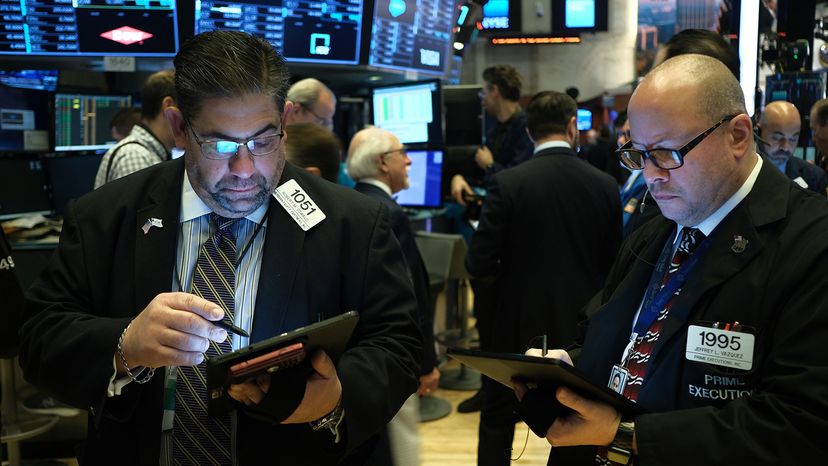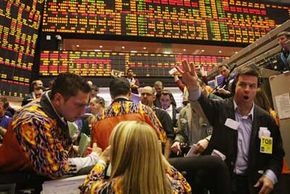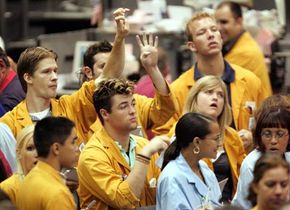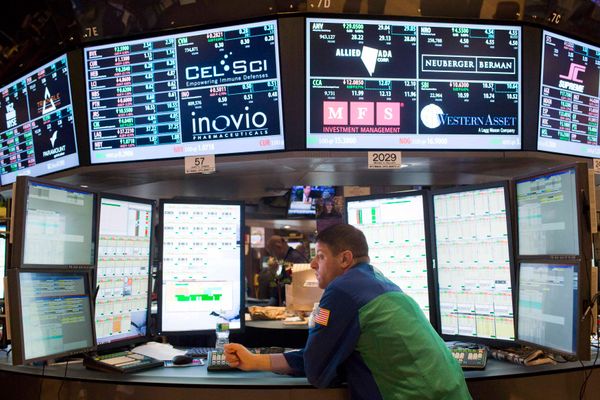
The U.S. stock market can be volatile. But stock futures are one way to hedge your investments so that no single market fluctuation – way up or way down – will ruin your portfolio.
The best way to understand how stock futures work is to think about them in terms of something tangible. Let's say you own a popcorn company and you need to buy corn to make your product. Every business day, the price of corn goes up and down. You want to buy corn for the lowest price possible so you can make the most profit when you sell your finished product. But you realize that the price of corn today might be very different from it is a year from now. So you enter into a futures contract with a farmer to buy his corn at a specific price on a certain future date.
Advertisement
The farmer needs to make money, too, so he's not going to agree on a price that's way below the current market value. So, you'll agree to a fair price to ensure that both of you will be happy with the transaction in a year. It won't be the highest or the lowest price, but neither one of you will get pounded by drastic market fluctuations.
Stock futures work in much the same way. Two parties enter into a contract to buy or sell a specific amount of stock for a certain price on a set future date. The difference between stock futures and tangible commodities like wheat, corn, and pork bellies – the underside of the pig that's used to make bacon – is that stock future contracts are almost never held to expiration dates. The contracts are bought and sold on the futures market – which we'll explore later – based on their relative values.
In the United States, you can buy and sell single stock futures or stock index futures – contracts based on the performance of an index like the Dow Jones Industrial Average or the S&P 500.
Advertisement




